
Find Help
More Items From Ergsy search
-

What is the relationship between rising rents and housing benefit cuts?
Relevance: 100%
-

What are the proposed Cuts to Housing Benefits Amid Rising Rents?
Relevance: 97%
-

What are the potential long-term impacts of housing benefit cuts?
Relevance: 67%
-
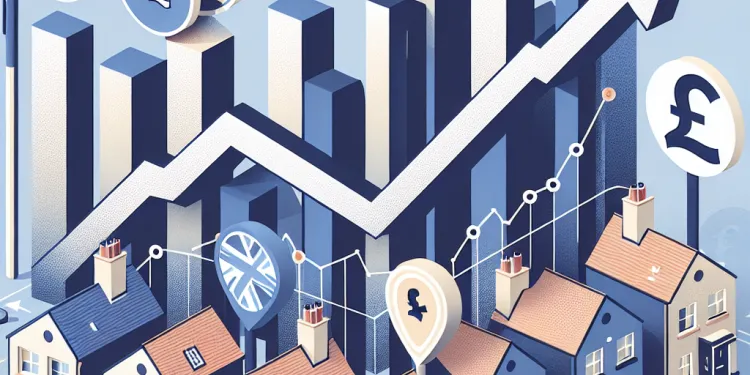
How does inflation affect the situation with housing benefits and rents?
Relevance: 66%
-
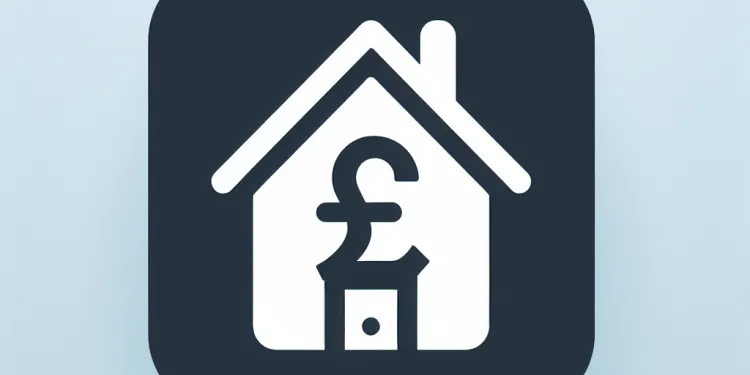
Who will be most affected by the proposed cuts to housing benefits?
Relevance: 65%
-

What is the main reason for the proposed cuts to housing benefits?
Relevance: 65%
-
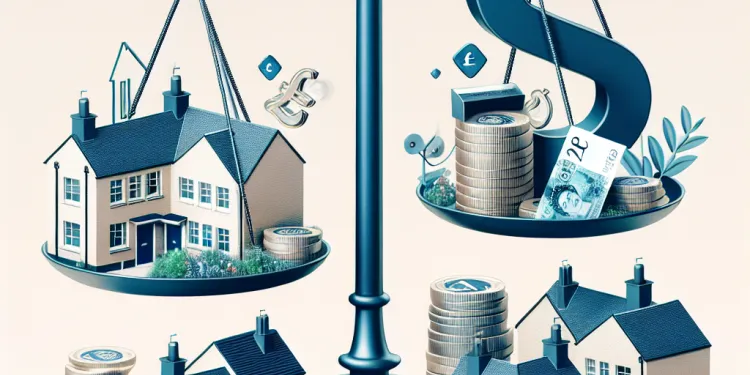
Is there a plan to offer additional support to offset housing benefit cuts?
Relevance: 63%
-

Is there any legal recourse for those affected by the housing benefit cuts?
Relevance: 61%
-
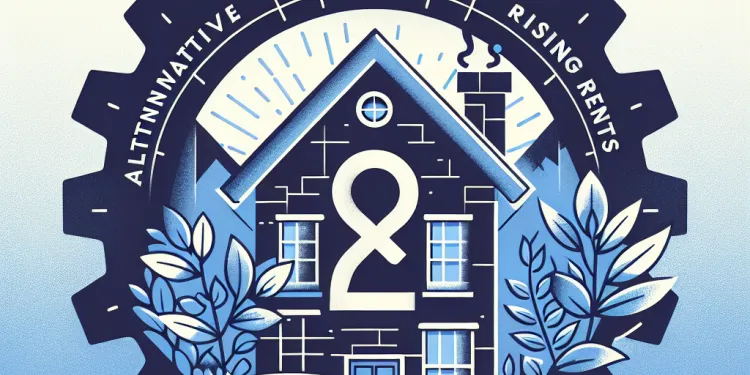
What alternative solutions are being discussed to combat rising rents?
Relevance: 57%
-

How can individuals contribute to the discussion on housing benefit cuts?
Relevance: 56%
-
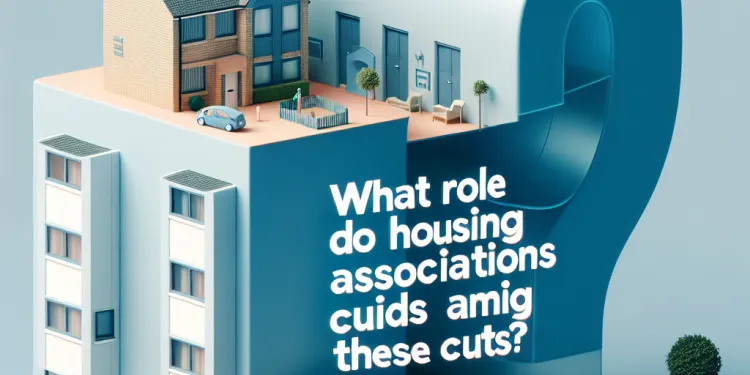
What role do housing associations have amid these cuts?
Relevance: 48%
-

What can tenants do if they are affected by the cuts?
Relevance: 46%
-
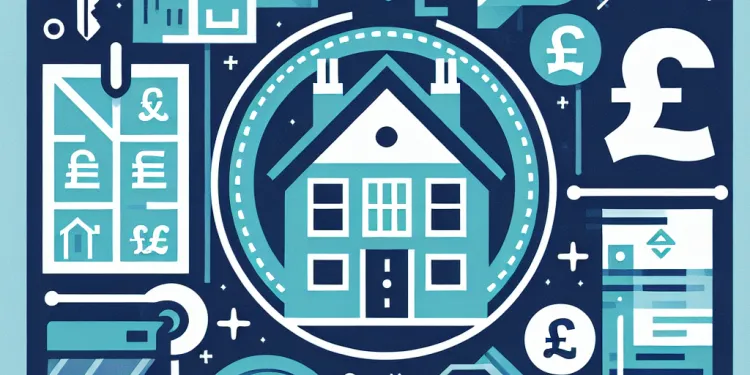
What measures are suggested to substitute the housing benefits?
Relevance: 45%
-

How will the cuts impact landlords?
Relevance: 44%
-

Understanding the Impact of Rising Living Costs on Family Welfare
Relevance: 41%
-

Proposed Welfare Cuts and Their Impact on Vulnerable Populations
Relevance: 38%
-

How does the reform impact renting costs?
Relevance: 37%
-

How are rent increases regulated under the new law?
Relevance: 37%
-
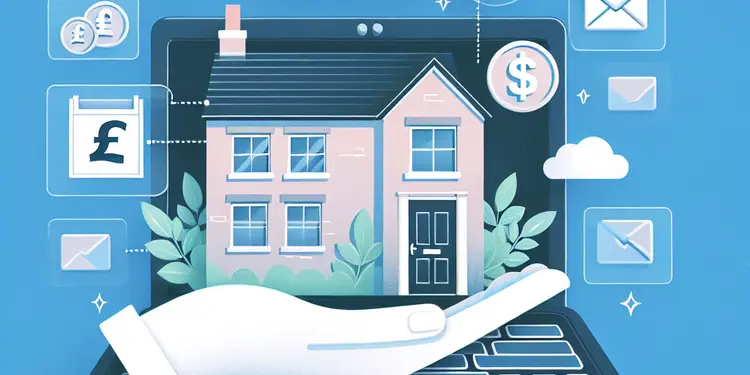
Is there assistance available for rent or mortgage payments?
Relevance: 35%
-

Impact of UK Housing Crisis on Local Communities
Relevance: 34%
-

House Prices Soar: First-Time Buyers Share Their Stories
Relevance: 34%
-
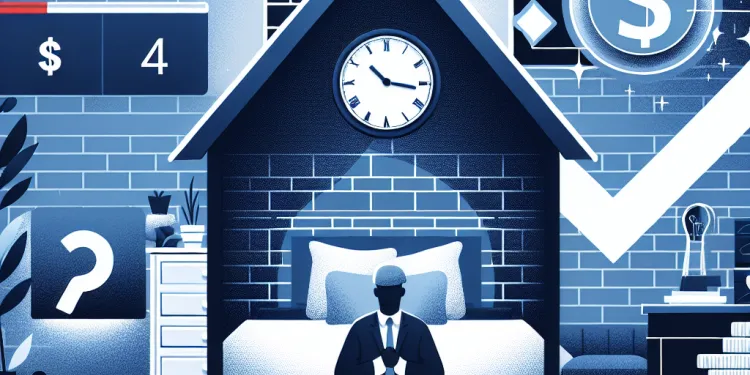
Addressing the Rising Homelessness Crisis
Relevance: 34%
-
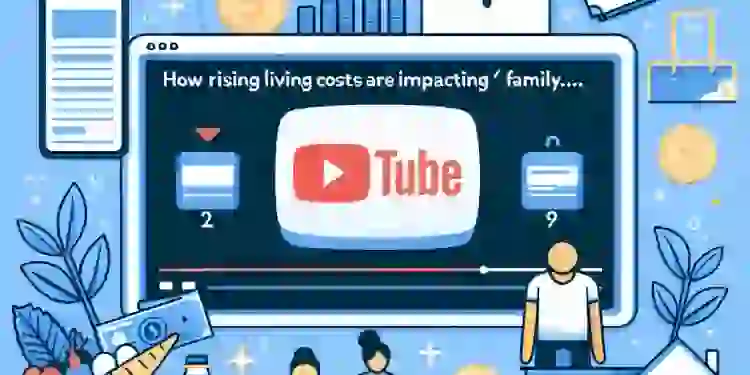
How Rising Living Costs Are Impacting Family Wellbeing
Relevance: 34%
-

Addressing the Housing Crisis: Current Challenges and Solutions
Relevance: 33%
-

Addressing the Rising Cost of Living: Community Support and Resources
Relevance: 33%
-

How do the reforms affect housing benefit tenants?
Relevance: 33%
-
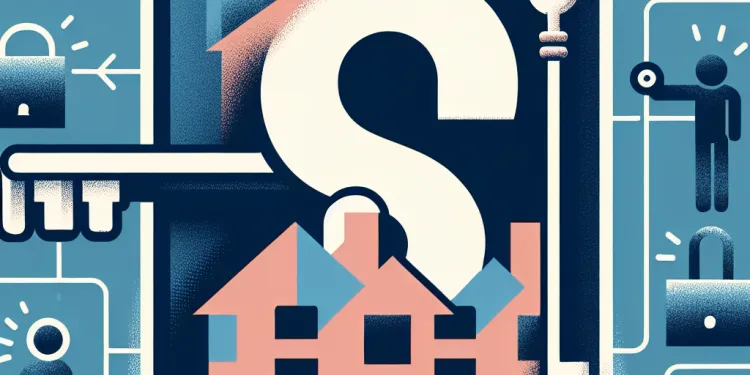
How have housing benefit recipients reacted to the proposed changes?
Relevance: 33%
-

What changes affect pet policies in rented homes?
Relevance: 31%
-

Are there any international examples being considered in handling housing benefit issues?
Relevance: 31%
-

New Government Benefits for Low-Income Families
Relevance: 31%
-

Impact of Rising Living Costs on Family Health
Relevance: 31%
-
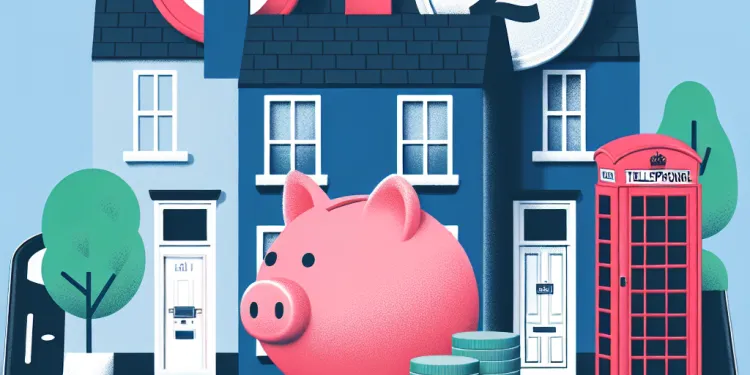
How will the proposed cuts impact tenants?
Relevance: 31%
-

Rising Cost of Living: How Families Can Cope
Relevance: 30%
-
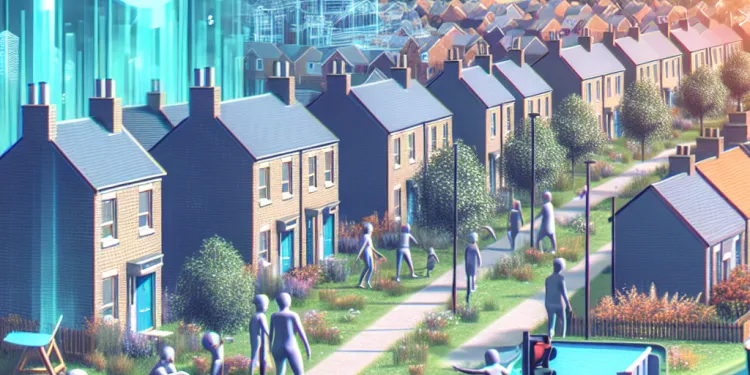
Impact of Housing Shortage on Local Communities
Relevance: 30%
-
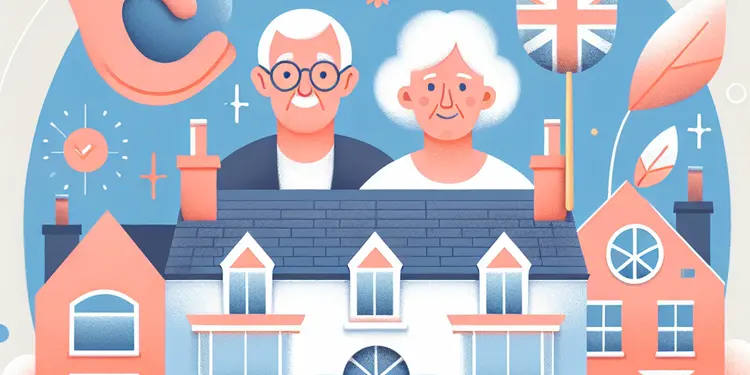
What housing assistance options are available for seniors?
Relevance: 30%
-

UK House Prices Fall for Third Consecutive Month
Relevance: 30%
-

Can mobility equipment be rented?
Relevance: 29%
-
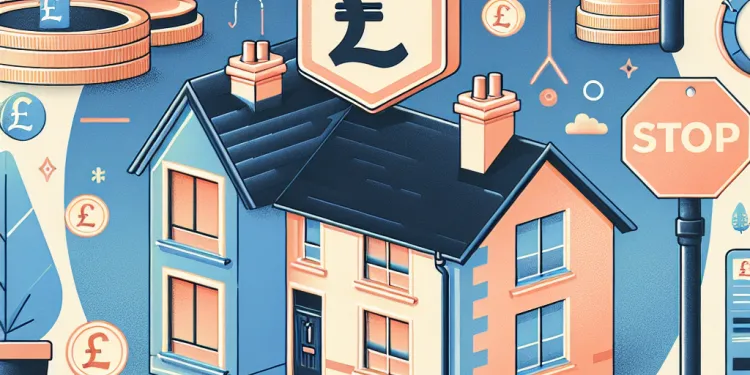
Can I stop an eviction if I catch up on rent payments?
Relevance: 29%
-

Are there any groups exempt from the proposed cuts?
Relevance: 28%
-
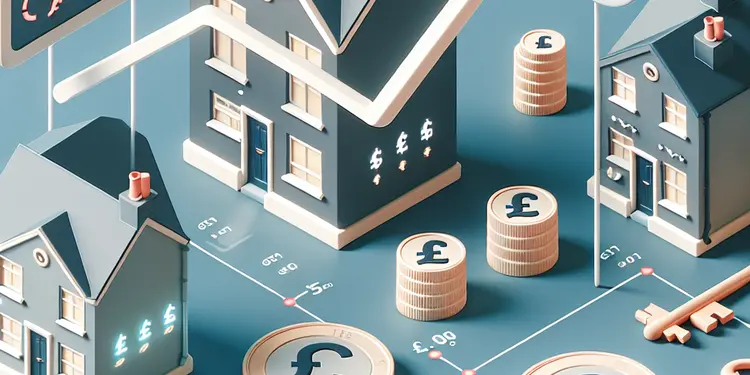
Rising Property Prices Fuel Concerns Over First-Time Buyer Accessibility
Relevance: 28%
The Issue of Rising Rents
Rising rents have become a significant concern in the UK, where the demand for housing is far outstripping supply in many areas. This imbalance between supply and demand has led to increased rental prices, particularly in urban centers and regions with high economic activity. The arrival of new businesses and the expansion of existing ones have driven up the cost of living, making it difficult for individuals and families to afford appropriate housing without straining their finances. The challenge is even more pronounced for those on lower incomes, as the availability of affordable housing decreases and rent takes up a larger portion of their income.
Understanding Housing Benefit Cuts
The UK government provides financial assistance to help eligible low-income individuals and families afford housing through housing benefits and the Universal Credit system. However, cuts to these benefits have been implemented in recent years as part of broad austerity measures. The introduction of the Benefit Cap, the 'bedroom tax', and the Local Housing Allowance (LHA) freeze are examples of policy changes that have reduced the amount of support available to beneficiaries. The Benefit Cap limits the total amount of benefits a household can receive, while the LHA sets the maximum amount of housing benefit based on local rent levels, which have not always kept pace with market rates.
The Impact of Housing Benefit Cuts on Renters
Housing benefit cuts have placed significant pressure on renters, particularly those with low incomes. As rents rise, the fixed amount of housing benefits means many households have to make up a growing shortfall from other sources of income, often leading to financial strain. This situation can result in renters having to choose between paying rent and other essentials, such as food and utilities. For some, the inability to keep up with rental payments can lead to arrears and the risk of eviction, exacerbating homelessness issues.
The Relationship Between Rising Rents and Housing Benefit Cuts
The relationship between rising rents and housing benefit cuts is a complex and multifaceted issue. As rents increase, the real value of housing benefits decreases, leaving beneficiaries with increasingly inadequate support. This mismatch can intensify poverty and social inequality, as those dependent on housing benefits struggle to cope with market-driven rent escalations. Furthermore, policies that do not adapt to these changes risk marginalizing vulnerable populations, thereby challenging the government's efforts to ensure housing affordability and economic stability.
Potential Solutions and Considerations
Addressing the issues arising from rising rents and housing benefit cuts requires a multifaceted approach that considers both policy reform and housing market dynamics. The government could consider revising the indexation of housing benefits to more accurately reflect real rental costs. Moreover, increases in housing supply through social housing projects and incentives for affordable private rental developments could alleviate the upward pressure on rents. Collaborative efforts between policymakers, local governments, and housing associations are crucial to crafting effective solutions that safeguard the interests of low-income renters while promoting sustainable economic growth.
The Problem with Rising Rents
Rents are going up in the UK. This means people have to pay more money to live in their homes. There are not enough houses for everyone who needs them. This makes rents higher, especially in big cities and places with lots of jobs. New businesses and old ones getting bigger make living cost more. People are finding it hard to pay rent and have money for other things. This is even harder for people who do not earn much money.
What Are Housing Benefit Cuts?
The UK government gives money to help people who don’t earn a lot, so they can pay for housing. This money is called housing benefits. But recently, the government has given less money to people. This is because they are trying to save money overall. The Benefit Cap and the 'bedroom tax' are examples of these changes. The Benefit Cap places a limit on how much money a family can get. The Local Housing Allowance sets the highest amount of money based on rent in a local area. But this money hasn’t always gone up with rents.
How Housing Benefit Cuts Affect People
When rents go up and housing benefits do not, people have problems. They might not have enough money to pay their rent. They have to use their own money to fill the gap. This makes it hard to buy other important things like food or to pay bills. If they cannot pay the rent, they might get behind in payments. This could mean they have to leave their home, which leads to people not having anywhere to live.
How Rising Rents and Cuts Are Linked
When rents get higher and benefits get lower, it is a big problem. People get less money but need more to pay rent. This can make life very difficult for people who need benefits. It can make poor people even poorer. If the government does not change their rules, it can make it harder for people to find an affordable place to live.
Ideas to Help the Situation
We need to think about different ways to fix rising rents and benefits cuts. The government could change how they work out housing benefits. They could also build more houses that people can afford. Building new houses would help to keep rents lower. Working together, the government and builders can find better ways to help people with low incomes. This is important to make sure everyone can have a home and to help the country grow well.
Frequently Asked Questions
What are rising rents?
Rising rents refer to the increase in the cost of renting residential properties over time due to factors such as demand, inflation, and market conditions.
What are housing benefit cuts?
Housing benefit cuts refer to the reduction in government assistance provided to help individuals and families cover the cost of rent.
How do rising rents affect housing benefit recipients?
Rising rents can increase the financial burden on housing benefit recipients, as the benefits may not cover the full cost, leading to a higher portion of income spent on rent.
Why are housing benefits being cut?
Housing benefits might be cut as part of government budgetary measures to reduce public spending or redirect funds. Policy changes and economic conditions also play a role.
What is the consequence of housing benefit cuts on rent affordability?
Cuts to housing benefits can make rent less affordable for low-income individuals or families, potentially leading to increased financial strain or risk of eviction.
What can result from housing benefit cuts in areas with high rental prices?
In areas with high rental prices, housing benefit cuts can result in an increased number of people unable to afford housing, potentially leading to homelessness.
What is the role of government in addressing rising rents?
The government's role can include creating policies to stabilize rental markets, providing sufficient housing benefits, and supporting the construction of affordable housing.
How do market forces contribute to rising rents?
Market forces such as increased demand, limited housing supply, and economic growth can contribute to rising rents by driving up property values and rental prices.
What can be done to mitigate the impact of housing benefit cuts?
Mitigating the impact may involve policy adjustments, increasing housing benefits, controlling rent prices, or providing additional support to affected individuals.
How could rising rents and housing benefit cuts affect urban areas?
In urban areas, these factors could exacerbate inequality, lead to displacement, and increase the concentration of wealthier individuals who can afford higher rents.
How are low-income families especially impacted by rising rents?
Low-income families may face increased hardship as rising rents consume a larger portion of their income, leaving less for other essential expenses.
What is the potential effect on landlords of housing benefit cuts?
Landlords may find themselves with tenants who struggle to pay rent, potentially leading to higher tenant turnover or the need to lower rental income expectations.
How might rising rents influence housing benefit policy changes?
Rising rents might pressure governments to reassess housing benefit policies to ensure that assistance meets the current cost of living and housing affordability needs.
What other social impacts could arise from these combined issues?
Social impacts can include increased poverty rates, stress on social services, and broader community instability due to housing insecurity and homelessness.
Are there international examples of how other countries handle these issues?
Yes, different countries employ various strategies such as rent control, increased public housing, or comprehensive rental assistance programs to tackle similar issues.
Could housing benefit cuts lead to changes in the housing market?
Potentially, yes, by affecting demand for rental housing from benefit recipients and possibly influencing rent prices if the supply of housing adjusts accordingly.
How might public opinion shift due to rising rents and benefit cuts?
Public opinion may become increasingly critical of government policies that do not adequately address housing affordability, leading to demands for policy reform.
What role does affordable housing play in this context?
Affordable housing can alleviate pressure on rental markets by providing more options for low-income individuals, thus mitigating the impact of rising rents and benefit cuts.
How might these dynamics affect future housing policy development?
Future policies may focus more on sustainable housing solutions, such as increasing affordable housing availability and reassessing the adequacy of benefits in relation to rent costs.
What are some potential long-term outcomes if these issues are not addressed?
If unresolved, long-term outcomes could include increased socioeconomic disparity, more prevalent housing crises, and greater demands on social services.
What does "rising rents" mean?
"Rising rents" means that the cost you pay to live in a house or apartment is going up. If rents are rising, people need to pay more money each month to their landlord.
Tools to help you understand:
- Ask Someone: Talk to an adult or a friend if you find it hard to understand.
- Use Pictures: Draw or look at pictures about houses and money to help.
- Break it Down: Read slowly and think about each word.
Rising rents mean paying more money to live in a place. This can happen because more people want to live there, money is not worth as much, or the housing market changes.
What are housing benefit cuts?
Housing benefit is money to help pay rent.
A cut means less money.
So, housing benefit cuts mean some people get less money to help them pay rent.
If you need help understanding, you can ask someone you trust to explain it.
Using pictures or videos can also help make it clearer.
Housing benefit cuts mean the government gives less money to help people pay for rent.
How do higher rents affect people who get housing benefits?
When rents go up, people who receive housing benefits might face challenges. Here's what happens:
- They might get less money for other things they need, like food or clothes.
- They may need to spend more of their own money on rent.
- It might be harder to find a home that they can afford.
Helpful tips:
- Use a calculator to help with budgeting.
- Look for advice from a local housing support group.
- If worried about money, talk to someone who can help, like a social worker or financial advisor.
When the cost of rent goes up, it can be hard for people who get housing benefits. The benefits might not pay for all of the rent. This means people have to spend more of their own money on rent.
Why are payments for houses getting smaller?
The money to help pay for houses is getting less. This might be because there is not enough money to give everyone as much as before.
Here are some things that might help you understand more:
- Speak to someone who knows about money help, like a support worker.
- Use easy-to-read leaflets about money and houses.
- Watch videos made for learning about this topic.
The government might give people less money for housing. This is because they want to save money or use it for other things. Changes in rules and the economy can affect this too.
What happens when housing help money is cut?
When people get less money to help pay for a place to live, it can be harder to pay rent. This means they might have less money for other things they need.
If someone has trouble reading, they can ask a friend or family member to help them understand. Using pictures and talking about it can also help.
Cuts to housing benefits mean that people get less money to help pay their rent. This can make rent harder to afford for people or families who don't have a lot of money. It might make money problems worse or even cause them to lose their homes.
What happens when housing help is cut in places where rent is high?
If the help people get for paying rent is reduced in places where rent is very expensive, some things can occur:
- People might have less money to pay for rent.
- They may have to move to cheaper homes.
- Some may need to ask for more help from friends or family.
- It's possible that more people could become homeless.
It's important to have tools to help with understanding this. You can:
- Use pictures to help explain.
- Ask someone to talk through this with you.
- Break down big words into smaller parts.
In places where rent is very expensive, if the money people get to help pay for housing is cut, more people might not be able to pay for their homes. This could mean more people have nowhere to live.
If you find reading hard, try using tools like audiobooks or ask someone to read with you. They can help make it easier to understand.
What can the government do about higher rents?
The government can help when rents go up. They make rules and laws to make sure rent prices are fair. They can also help people who need money to pay rent. The government can build more houses so there are enough homes for everyone. They make sure landlords treat people renting homes fairly.
Tips to help understand this topic:
- Talk to someone you trust about how rent works.
- Find a video online that explains rents simply.
- Use a reading tool that reads text out loud.
The government can help in a few ways. They can make rules to keep rent prices steady. They can give money to help people pay for housing. They can also help build homes that are not too expensive.
Why are rents going up?
Many things can make rents go higher. Let's see what they are:
- More people, less homes: If lots of people want to live in one place but there aren't enough homes, rents go up.
- Better places: If a neighborhood improves with nice parks or schools, more people want to live there, and rents might rise.
- Job opportunities: If there are more jobs in an area, people want to move there, making rents go higher.
- Inflation: When things cost more, landlords may charge more rent to keep up with their own costs.
Here are some tips that can help:
- Use pictures or drawings to understand better.
- Ask someone to read with you or explain if you get stuck.
Rents can go up because of a few reasons:
- More people want to rent homes.
- There are not many homes to rent.
- The economy is getting better.
These things can make homes more expensive to rent.
For help, you can try these tools:
- Use apps that read text out loud.
- Use text-highlighting tools to follow along.
- Try breaking information into smaller parts.
How can we help with the problem of less money for housing support?
We can make things better by changing some rules. We can:
- Give people more help with paying for their homes.
- Make sure rent prices don't go too high.
- Help people who are having a hard time.
How do higher rents and cuts to housing help affect cities?
Higher rents mean people pay more money to live in their homes. Less money for housing help means some people get less money to pay for their homes.
This can make it hard for people to afford living in cities. Some might have to move away.
People can use money tools, like a budget, to help manage their money. Asking friends or family for advice can also help.
In cities, changes can make life harder for some people. Rich people might make rents go up, and this can push others out of their homes.
How do families with little money struggle when rent goes up?
Families without much money find it hard when rent costs more.
Here are some ways they might struggle:
- They have less money for other things they need, like food or clothes.
- They might have to move to a smaller or less nice home.
- They could feel worried or stressed about paying their bills.
Some things that can help are:
- Asking friends or family for help or advice.
- Looking for government help for rent or bills.
- Finding places that share food or clothes for free.
Families with little money might struggle more. If rent goes up, they have to spend more of their money on it. This means they have less money for other important things they need.
It can help to use tools like budgeting apps, which show you how to split your money for rent, food, and other needs. Talking to a helper, like a social worker, can also be a good idea. They can give advice on how to manage money better.
How might cutting housing benefit affect landlords?
Landlords might have tenants who can't pay rent easily. This can lead to tenants moving out a lot or landlords needing to expect less money from rent.
How could higher rents change housing benefit rules?
Rents are the money you pay to live in a house or apartment.
If rents go up, it might change how the government helps pay rent through housing benefits.
Housing benefits help people afford their homes.
When rents rise, the government might have to change the rules to give more money to people who need it.
Tools like picture cards or talking about it with a friend can help you understand this topic better.
Rising rents mean people have to pay more money to live in their homes. Because of this, governments might need to change the rules about housing help. This way, people can get the right amount of money to help them pay for their homes.
What else could happen in the community because of these problems together?
When people don’t have a safe place to live, it can make life harder for everyone. More people might not have enough money. Services that help people can be really busy. The whole community can feel less stable.
How do other countries deal with these problems?
Yes, different countries use different ways to help with housing. They might try rent control, build more public homes, or give money to help people pay rent.
Here are some ways to get help with reading:
- Use apps that read text out loud.
- Ask someone to explain the text to you.
- Try to read in a quiet place with no distractions.
Will cutting money for housing change the housing market?
Yes, it might happen. If more people get housing benefits, they might want to rent more homes. This could make rent prices go up or down, depending on how many houses are available.
What do people think about rents going up and benefits getting cut?
Here is how to understand it:
- Rents going up means people pay more money to live in their homes.
- Benefit cuts mean people get less money help from the government.
Here are some ways to think about this question:
- Think about how people feel when they have to pay more for their homes.
- Think about how people feel when they get less money help.
- Talking to others can help you understand different opinions.
- Using videos or pictures may explain things more clearly.
People might get upset if the government does not help make homes cheaper. They could ask the government to change the rules to help more people afford houses.
Why is having homes that people can afford important here?
Affordable housing helps people who have less money. It gives them more places to live. This means rent won't have to go up as much, and people won't need as much help with money.
How could these changes change future housing rules?
In the future, there might be new plans to help people find good homes. These plans could include more houses that people can afford. They might also check if the money given to help with rent is enough.
What could happen if we don’t fix these problems?
If we don't fix these problems, we might have big issues in the future. These could be:
- More people who are rich or poor with nothing in between.
- More people having trouble finding homes to live in.
- Social services needing to help more people.
To help with reading, try using tools like audiobooks or text-to-speech apps. They can read the text out loud and make it easier to understand.
Useful Links
This website offers general information and is not a substitute for professional advice.
Always seek guidance from qualified professionals.
If you have any medical concerns or need urgent help, contact a healthcare professional or emergency services immediately.
Some of this content was generated with AI assistance. We’ve done our best to keep it accurate, helpful, and human-friendly.
- Ergsy carfully checks the information in the videos we provide here.
- Videos shown by Youtube after a video has completed, have NOT been reviewed by ERGSY.
- To view, click the arrow in centre of video.
- Most of the videos you find here will have subtitles and/or closed captions available.
- You may need to turn these on, and choose your preferred language.
- Go to the video you'd like to watch.
- If closed captions (CC) are available, settings will be visible on the bottom right of the video player.
- To turn on Captions, click settings .
- To turn off Captions, click settings again.
More Items From Ergsy search
-

What is the relationship between rising rents and housing benefit cuts?
Relevance: 100%
-

What are the proposed Cuts to Housing Benefits Amid Rising Rents?
Relevance: 97%
-

What are the potential long-term impacts of housing benefit cuts?
Relevance: 67%
-

How does inflation affect the situation with housing benefits and rents?
Relevance: 66%
-

Who will be most affected by the proposed cuts to housing benefits?
Relevance: 65%
-

What is the main reason for the proposed cuts to housing benefits?
Relevance: 65%
-

Is there a plan to offer additional support to offset housing benefit cuts?
Relevance: 63%
-

Is there any legal recourse for those affected by the housing benefit cuts?
Relevance: 61%
-

What alternative solutions are being discussed to combat rising rents?
Relevance: 57%
-

How can individuals contribute to the discussion on housing benefit cuts?
Relevance: 56%
-

What role do housing associations have amid these cuts?
Relevance: 48%
-

What can tenants do if they are affected by the cuts?
Relevance: 46%
-

What measures are suggested to substitute the housing benefits?
Relevance: 45%
-

How will the cuts impact landlords?
Relevance: 44%
-

Understanding the Impact of Rising Living Costs on Family Welfare
Relevance: 41%
-

Proposed Welfare Cuts and Their Impact on Vulnerable Populations
Relevance: 38%
-

How does the reform impact renting costs?
Relevance: 37%
-

How are rent increases regulated under the new law?
Relevance: 37%
-

Is there assistance available for rent or mortgage payments?
Relevance: 35%
-

Impact of UK Housing Crisis on Local Communities
Relevance: 34%
-

House Prices Soar: First-Time Buyers Share Their Stories
Relevance: 34%
-

Addressing the Rising Homelessness Crisis
Relevance: 34%
-

How Rising Living Costs Are Impacting Family Wellbeing
Relevance: 34%
-

Addressing the Housing Crisis: Current Challenges and Solutions
Relevance: 33%
-

Addressing the Rising Cost of Living: Community Support and Resources
Relevance: 33%
-

How do the reforms affect housing benefit tenants?
Relevance: 33%
-

How have housing benefit recipients reacted to the proposed changes?
Relevance: 33%
-

What changes affect pet policies in rented homes?
Relevance: 31%
-

Are there any international examples being considered in handling housing benefit issues?
Relevance: 31%
-

New Government Benefits for Low-Income Families
Relevance: 31%
-

Impact of Rising Living Costs on Family Health
Relevance: 31%
-

How will the proposed cuts impact tenants?
Relevance: 31%
-

Rising Cost of Living: How Families Can Cope
Relevance: 30%
-

Impact of Housing Shortage on Local Communities
Relevance: 30%
-

What housing assistance options are available for seniors?
Relevance: 30%
-

UK House Prices Fall for Third Consecutive Month
Relevance: 30%
-

Can mobility equipment be rented?
Relevance: 29%
-

Can I stop an eviction if I catch up on rent payments?
Relevance: 29%
-

Are there any groups exempt from the proposed cuts?
Relevance: 28%
-

Rising Property Prices Fuel Concerns Over First-Time Buyer Accessibility
Relevance: 28%


